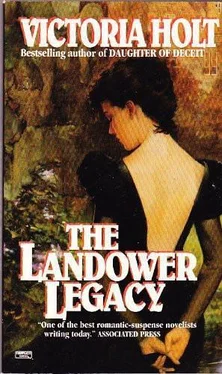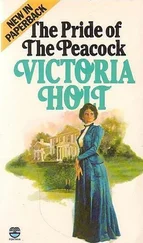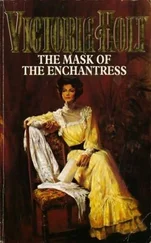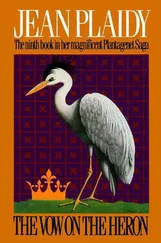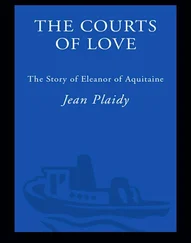Rosie Rundall was the most unusual parlourmaid I had ever known. She was tall and good-looking. In fact parlourmaids were always chosen for their appearance. They were the servants seen by visitors, and ill-favoured ones could give a bad impression of a household. I often thought that in Rosie we had the supreme in parlourmaids.
Rosie could be extremely dignified with guests. People noticed her. They gave her a second glance. She was aware of it and received this silent homage with an equally silent dignity. But when she was with Olivia and me—which she contrived to be quite often—she was a different person altogether.
Both Olivia and I were very fond of Rosie. I suppose there were not many people to whom we could show affection. Our father was too good, our mother too beautiful; and although Miss Bell was very worthy, and good for us, I was sure, she was not exactly affectionate.
Rosie was warm-hearted and not averse to flying in the face of authority. When Olivia spilt gravy on her clean pinafore, with a wink.
Rosie had whisked it away, washed it and ironed it in such a short time that nobody knew anything about it; and when I broke a Sevres vase which stood on a whatnot in the drawing room, Rosie took it away and stuck it together again, craftily placing it in an inconspicuous position.
“I’ll be the one to dust it,” she said with a grin. “Nobody will know. What the eye don’t see, the heart don’t grieve for.”
It occurred to me that Rosie went about the world saving a lot of hearts from grief.
On her nights out—one a week (she had insisted on those nights when she first came, and Mrs. Winch, delighted to acquire such a good-looking girl, gave in), Rosie would dress up like a lady. She became quite a different person from the one we knew in white cap and apron. She would look very grand in a silk dress and a hat with a jaunty feather and gloves and a parasol.
When I asked where she went she gave me a little push and said: “Ah, that’s telling. I’ll tell you when you’re twenty-five.” That was a favourite expression of hers. “One of these days, when you’re twenty-five, you’ll know.”
I was always interested to see the important people who came to the house. In the hall there was a beautiful staircase which wound round and round to the top of the house, with a well in the middle so that from the top floor—where the servants’ sleeping quarters, the nurseries and the schoolroom were situated—one could look right down and see what was happening in the hall. Voices floated upwards and it was often possible to glean all manner of surprising pieces of information in this way. There was nothing so maddening—nor so intriguing—as to have a conversation cut short at some vital point. It was a game I thoroughly enjoyed, although Olivia thought it was somewhat shameful.
“Listeners,” she said, quoting adult philosophy, “never hear any good of themselves.”
“Dear sister,” I retorted, “when do we ever hear anything of ourselves—good or evil?”
“You never know what you might hear.”
“That’s true and that’s what makes it exciting.”
The plain fact was that I enjoyed eavesdropping. There was so much which was kept from us—unfit for our ears, I supposed. I just had an irresistible desire to know these things.
So peering down at the guests as they arrived was a source of great enjoyment. I liked to watch our beautiful mother standing at the top of the stairs at the first floor on which were the drawing room and salon where well-known artistes—pianists, violinists and singers—often came to perform for our guests.
Poor Olivia would squat beside me in torment lest we should be discovered. She was a very nervous girl. I was always the ringleader when it was a question of acting adventurously, although she was two years my senior.
Our governess, Miss Bell, used to say: “Speak up, Olivia. Don’t let Caroline call the tune every time.”
But Olivia was always retiring. She was really quite pretty, but the sort of person people simply did not notice. Everything about her was pleasant but ordinary. Her face was small and pale; I was already taller than she was; her features were small, except her eyes, which were large and brown. “Like a gazelle’s,” I told her, at which she did not know whether to be pleased or hurt. That was characteristic of Olivia. She was never sure. Her eyes were beautiful but she was short-sighted and that gave her a helpless look. Her hair was straight and fine, and no matter how it was restricted, strands would escape, to the despair of Miss Bell. There were times when I felt I had to protect Olivia; but for the most part I was urging her to reckless adventure.
I was quite different in looks as well as in temperament. Miss Bell used to say that she would not have believed two sisters could be so unlike. My hair was darker, almost black; and my eyes were a definite shade of green which I liked to accentuate by wearing a green ribbon in my hair, for I was very vain and aware of my striking colouring. Not that I went so far as to think of myself as pretty. But I was noticeable. My rather snub nose, wide mouth and high forehead—in an age when low ones were fashionable—precluded me from a claim to beauty, but there was something about me—my vitality, I think—which meant that people did not dismiss me with a glance, and they invariably took a second look.
This was the case with Captain Carmichael. To think of him always gave me a thrill of pleasure. He was magnificent in his uniform— the scarlet and the gold—but he always looked very handsome in his riding clothes or dressed for the evening. He was the most elegant and fascinating gentleman I had ever seen and he had one quality which made him irresistible to me: he singled me out for his especial notice. He would smile at me and, if there was an opportunity, would speak to me, treating me as though I were an important young lady instead of a child who had not yet emerged from the schoolroom.
So when I peeped through the stairs I was always looking for Captain Carmichael.
There was a secret I shared with him. My mother was in it, too. It concerned a gold locket, the most beautiful ornament I had ever possessed. We were not allowed to wear jewelry, of course, so it was really very daring of me to wear this locket. True it was under my bodice, which was always tightly buttoned up so that no one could see the locket; but I could feel it against my skin and it always made me happy. It was exciting, too, because it was hidden.
It had been given to me when we were in the country.
Our country house was about twenty miles from London—a rather stately Queen Anne building standing in parklands of some twenty acres. It was very pleasant, but it was not Tressidor Manor, I had heard my father say with some bitterness.
However, most of our days were spent there, our needs provided for by a bevy of servants and Miss Lucy Bell, whom I called the matriarch of the nursery. She seemed old to us, but then everyone over twenty seemed ancient. I think she was about thirty years old when she came to us and at this time she had been with us for four years. She was very eager to fulfil her duties adequately, not only because she needed to earn a living, but, I was sure, because she was in a way fond of us.
In the country we had our nurseries—large pleasant rooms full of light—at the top of the house, giving us delightful views over woodland and green fields. We had our own ponies and rode a good deal. In London we rode in the Row, which was exciting in a way because of the people who bowed to our mother on those occasions when she rode with us; but for the sheer joy of galloping over the springy turf, there was nothing like riding in the country.
It was about a month before we came up to London when our mother arrived unexpectedly in the country. She was accompanied by Everton with hatboxes and general luggage and everything my mother needed to make life agreeable. It was rarely that she came to the country and there was a great deal of bustle throughout the house.
Читать дальше
